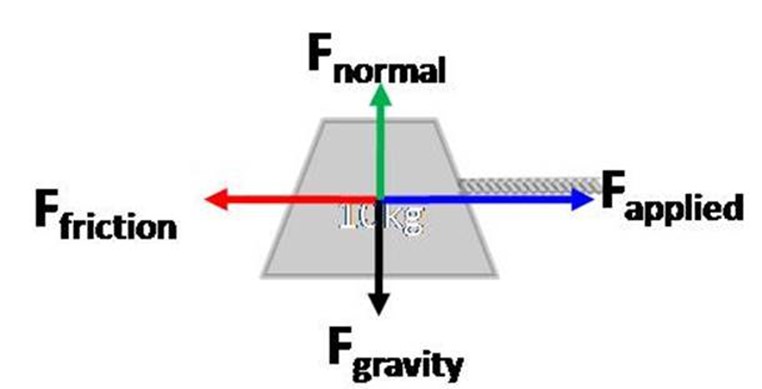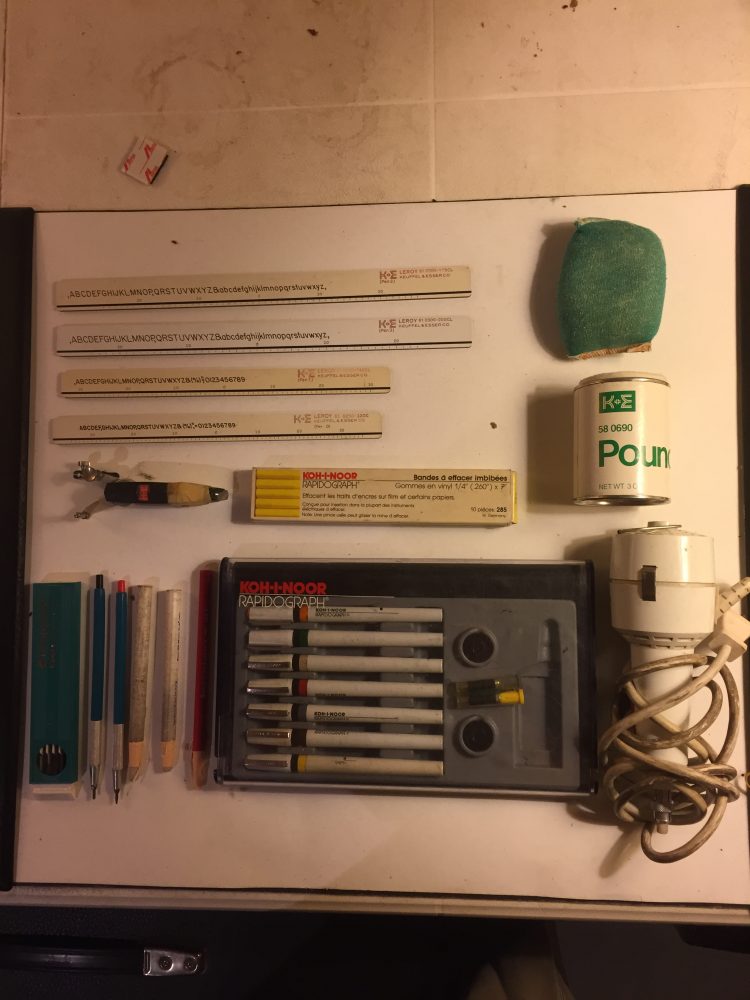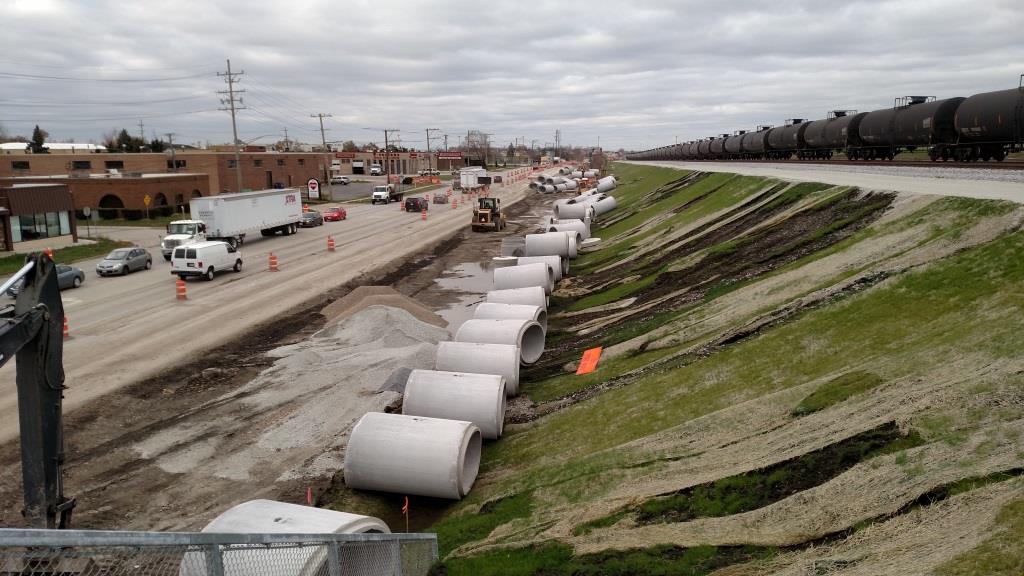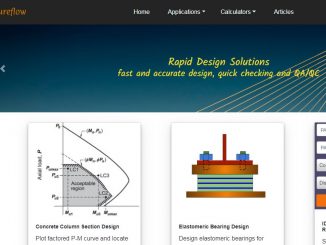
When is the last time that you used “Free Body Diagram” in a sentence?
You smiled after you read that, right? You were immediately teleported back to a simpler time. Your high school Physics class, maybe? Or the lecture hall where you had Statics & Dynamics? C’mon, admit it. You haven’t thought about ’em in years….
The most-simple form of problem definition. The basis of engineering theory. It all starts with a shape and applied forces. We build our theories from here. It’s the start of engineering analysis.
Today’s article will take you on a little journey that deals with Critical Thinking. I recently found myself caught in a web of “un-Critical Thinking.” I wanted to share some of my thoughts & observations on what I see as an impending problem that, over time, will continue to permeate our industry, and if left unchecked, will have negative consequences on our next generation of engineers.
Social Media & Engineering
I’m not on Facebook. Instagram was the first real social media app that I ever really tried, and now, it’s my occasional dose of mental diversion. I try not to waste too much time surfing the Internet, even though I’ll dive into threads of sites, articles & blogs now and again.
I’m no prude. Yes, I’ve wasted time, just like you, running down Internet rabbit holes. None of us like to admit it. It happens to all of us.
My generation of engineers, and obviously those who came before me, had the privilege of being educated before the Internet. I won’t mention Lotus, or 5-1/4″ disks. I won’t mention dot matrix printers, or Fortan. I won’t get all crusty & nostalgic on you by talking about drafting on mylar with Leroy’s & Kohinoor pens (which I still have…). It will just make me sound like a crotchety old throwback. But it is a little bit of glue that keeps those of us in the older fraternities together.
I’m happy to say that I was brought up in that era. My generation has a great deal of appreciation of how technology has made the craft of engineering a bit easier. Excel can now do the calculations that we had to run by hand. Word can print documents that used to be produced with typewriters or word processors. You can stand behind a survey instrument and turn angles and have a data collector run the calc’s instead of having to produce them long-hand with pencil & calculator.
We live in an amazing time.
We also now have the ability to communicate with people who we’d NEVER cross paths with if it wasn’t for the Internet. Communities of like-minded people can associate, share ideas, meld individual experiences into collective thought. It is awesome (“awesome” used as an adjective to describe something breath-taking, awe-inspiring or magnificent, NOT to describe something as “way cool…”).
One of the communities that I stumble into now and again is at a website called Engineering Tips (www.eng-tips.com). It’s a forum-type site built for engineers to exchange ideas, pose questions, offer guidance, etc. I’m not a frequent user, but I do, from time-to-time, like to meander through the subject boards where I have a body of knowledge. I will only post my thoughts if I have something credible to offer.
One thing that I’ve noticed in reading the questions, comments, responses & suggestions from its membership: Not all of the information is serviceable. In fact, I’ll take it one step farther: Some of what I’ve read is just plain bad.
Now please, don’t accuse me of being overly judgmental just yet – Hear me out. I’m not taking shots at innocents who are trying to help fellow engineers. Really. Think about it: How hypocritical would that make me, given that I’ve chartered this website to be a small housing group of engineering thought and exchange (even if 99% of the thoughts are my own…) to throw stones at any internet-based “Engineering Helper” and deem it to be a detriment to the engineering community? No sir, that’s not my theme here.
What I do want to drill into is a question:
Is the Internet derailing the craft of Engineering?
My Spidey Senses are tingling again…..
Repainting a Pedestrian Bridge
Several months ago, a young engineer posted a question on one of the forum pages about bridge painting costs (CLICK HERE IF YOU’RE INTERESTED IN READING THE FULL THREAD). He was apparently involved on a rehab project and was soliciting the forum for some unit costs that he might be able to use in his analysis.
He got some advice from some well-intentioned forum members. I offered my thoughts to him:
“NWIeng, as a 25+ year construction resident engineer, I will tell you that for bridge painting, there is no “plug number” based on SF of area, and I wouldn’t trust any book-value that someone might want you to use. You really have to look at all of the general condition-type costs that the painter may encounter and consider those as part of the cost development process. Traffic control, site access, time of day for work / restrictions, waterway or roadway below, type of access equipment needed (lifts from below vs. snoopers from the top)? Are you just doing fascia girders? Diaphragms & interior girders? Are there handrails & detailed elements that will require more detailed blasting & surface prep than girder faces? Will the entire bridge be accessible or will multiple mobilizations be needed?
Summarily, there are a lot of variables that will drive the cost that an “off-the-shelf” plug number can’t anticipate. The actual application requirements for primer & paint, as (another forum member) mentions above, play into the cost, but the money on bridge painting contracts isn’t driven as much by the materials as it is by the labor & equipment costs.”
Sage advice, wouldn’t you think? I wasn’t being condescending. I was just trying to aid a young person in assessing a criteria that he was obviously unfamiliar with. I wanted him to understand that there wasn’t a magic number that would answer his question. He would need to do some work to develop the information he was looking for.
What set me off was the post that followed mine from another engineer:
Some typical costs are $5 to $25 per square foot for spot coating, $3 to $25 per square foot for an overcoat, and $15 to $25 per square foot for complete paint removal and repainting.”
Now, rather than turn this article into a discourse about a forum discussion that I had with another engineer, I’ll save you the time: You can go to the thread yourself and see my full response, but here was the meat of my retort:
Owners, DOT’s and our clients hire us for our expertise. It makes me cringe when I ask a young engineer to validate a unit cost for a complicated work element and they tell me that they found it in a book. Until you’ve had to be grilled by an owner for an under-stated, or over-stated cost estimate, you haven’t felt this sting. It does no one any good to, say, take the high unit cost because that will force the owner to budget high for it. While it might be a safe play for the engineer, it might force the owner to encumber more funds than he needed. And if he’s done this on a loosely-assumed notion, then the engineer hasn’t provided the service that meets the Standard of Care our community is responsible for. And the same is true when your estimate is 35% under budget and the owner is scrambling for funds and wants your insurance carrier to chip-in on the overage. No bueno….
Like I said, I really don’t want this article to be a regurgitation of a professional difference of opinion with a fellow tradesman. That’s not my point here. And I also don’t want this to be an article about pedestrian bridge painting OR about cost estimating. I’ve made my point. Sorry to hurt anyone’s feelings, but in this case, I’m right.
The engineer who posted the cost figures was completely off-base. He was giving information that was completely baseless to the situation. He was just throwing wide-banded unit costs at a scope of work that he couldn’t define. This answer was just some data pulled from somewhere. He was leading a young engineer down a nasty looking road of assuming that the information he was being given by a sourceless provider was applicable to his situation.
Fake news? Or would this be fake engineering?
Obviously, the exchange lit a fire in my belly on the subject of technology’s impact on engineering. It got me thinking about the bigger picture insofar as the Internet is concerned. This ugly example isn’t the first of it’s kind. Nor will it be the last.
Will Google Save the World or Destroy It?
I’ll let you answer that question for yourself because it’s not a “Yes” or “No” question, it’s way too vast a topic. And obviously, there is no right or wrong answer. But as the question relates to our industry….
I am fearful for our craft. For our profession. For the future of engineering.
Let’s be real with each other: I’m not saying that because I have some woebegone notion of days gone by when you had to go to the library and use the Dewey Decimal System to hunt down the information you were looking for. I don’t want to bring back slide rulers and drafting tables. We’ve progressed. Technology is helping us. Research is advancing our trade. That’s good.
But here’s what I see. I see a change coming.
Ask yourself a question: When you are in a construction trailer and a problem needs your attention, where do you go first? Do you use your intuition? Your education? Your experience? Your hard-bound resources? Your knowledge-based skill set? Do you try to grind through the solution the way your college professors taught you to?
Or, do you turn to the Internet search bar? To Google? To a database of knowledge that isn’t your own? Or to a forum message board of nick-named un-vetted sources?
Like it or not, the Internet has the power to effect the execution of critical thinking.
There is a “Quick Answer” mentality that is seeping into our industry. The Internet gives us instant gratification. We can get thousands of hits on subjects that are only a few words long in a search bar. We can start to short-cut deductive reasoning and just find AN answer. It might not be THE answer, it’s just one of the thousands of answers deemed to be the most popular by a bunch of algorithms that some computer jockey in Silicon Valley wrote.
We now have the ability to download manuals, reference materials, spreadsheets, specifications, product data & engineering-related information at light speed. How are our brains adapting to this inundation? Has the human mind figured out how to adapt its thinking patterns to absorb, dissect and ferret-out the necessary information required to solve a problem? Or are we simply turning into regurgitation machines, spitting out answers like some sort of 21st century ticker tape?
Are we an industry of critical thinkers? Or are we being exposed to a technology and just drifting into a sea of computer coded prioritization?
Where Are We Heading?
I don’t have the answer. I am simply voicing an observation. But here’s my question: Am I the only one who is seeing the shift from diving into the details of problem solving with pencil & paper, with proven reference material that have been used before, to just typing in a few keywords into a search bar and then using an answer that pops out?
I’m not a sociologist. I don’t do research on human behavior. I don’t spend my free-time reading human psychology dissertations. I’m just a mid-career engineer who likes to observe and comment. Say what you want, but I think I’m onto something here.
The Internet. Technology. All of this inter-connectedness that we didn’t have, say, 20 years ago, is forcing us to think differently. To process information differently. And humans haven’t had the time to evolve to be able to properly deal with the blitz of information that we are being subjected to.
Think about our industry. The problems we are tasked to solve:
- Create elements to allow people & modes of transportation to cross obstacles
- Design & construct delivery systems required for basic human function (water, sewerage, electricity, communication)
- Develop infrastructure to allow people to be mobile and thrive
As civil engineers, we have a pretty static list of To Do’s. We’ve solved the same problems in similar ways for hundreds of years. I don’t foresee our industry’s charter radically changing in the next couple of centuries.
Really. We build roads & bridges. We design & install water mains & sewer systems. We supply the transmission vehicles for energy to be supplied to humans. We dispose of waste. We help access natural resources that other industries need for raw materials. New technologies might crop up now and again. But, you really have to stretch your thinking to come up with the new “outlier-type” solutions that require us to re-invent how we solve the problems at the same speed that technology is advancing.
The types of problems that we have historically solved aren’t going to be requiring us to radically change the way we work. So, is the over-abundance of information, and moreover, the speed at which we can access it, altering the way we “engineer” problems? Are we allowing these “tools” to move us away from the use of critical thinking & problem solving and towards algorithmic dependency? Have our brains, and the way in which we go about solving problems, adapted to being able to process & use the flood of information effectively?
How Should We Manage Technology?
Here’s my offering to this buffet of food for thought: As civil engineers, we need to be careful. Watchful. Cognizant. We cannot let ourselves become reliant on mass inundation of information. We have to remain principled. We can’t get lazy.
The ready-access to information pertinent to our duties as engineers is powerful. Obviously, we’ll continue to use it. We’ll download FHWA manuals. We’ll go to IDOT’s website to grab forms and checklists in fractions of the time it would have taken us to do the task 10 years ago. Those are purposeful uses of the information superhighways.
But, we have to stay vigilant when it comes to “how” we are using the information. Google is not Engineering. It is a tool to help us FILTER & FIND the answer. We need to retain command of how we FORMULATE, OPTIMIZE, DETERMINE & SELECT the answer.
Don’t be complacent. Don’t let the engineers working on your teams use Bing & Yahoo in place of their calculator, their textbooks & most important, their minds. Demand the use of common sense. See to it that solutions use engineering judgement. Challenge & validate the sources of their information & how their research was performed. Did they apply their knowledge in solving a problem? Don’t let the first 2 pages of a Google search become an engineering solution….
As a profession, let’s continue to create environments where critical thinking thrives. We need to be cognizant of the need for Internet filters: That filter resides in our minds. Don’t get lazy. Use the tools you have wisely. With Great Power Comes Great Responsibility.
I’m really interested to hear your thoughts: Drop a comments and let me know what you think.





Whenever Im on eng-tips, it’s all about learning the mechanisms of certain detailing or why the code reads as it does. It takes years to really understand the mechanics and the behavior of materials we use, especially when trying to understand the reasoning being codes and standards. People who have actually built things, seen it go wrong and all the in-between. Invaluable information in some cases. A fresh engineer may not get the right info, but someone more experienced should know when they are getting accurate or bunk advice. There are many “by the book” people who don’t know what they’re talking about, but there is a wealth of knowledge in there when looking correctly. Follow the advice up with your own research.
Thanks for sharing your thoughts, Michael – Cheers!
Michael, I really appreciate the thoughts. I face this daily. There are many who can barely do few calculations using some formulas call themselves design engineers, they just make project in their computer without any practical sense or applying the engineering judgement, for them there must be a rule book for every issue. There is really no one to compel such guys make it realize!
Thanks for sharing your thoughts, Anand. Engineering is as much science as it is a craft; judgement & experience come through time spent working through projects, problems & solutions. Let’s keep doing our part to keep the basics & principles at the forefront of what we do, especially with those who are rising through the ranks – Cheers!!
I enjoyed reading this article. As a first time poster on Eng-Tips this week, I had a completely inverted experience to you. I was hoping to find resources to help solve a vibration problem I was having, but all of the responders were intent on trying to “solve” the problem for me by requesting as much detail as possible. Which would have been difficult on a forum as it was a complex system and I didn’t want to have to dimension, explain and justify every component.
Whereas ideally I was looking for guidance and direction, to enable me to carry out further reading and investigation to solve the problem. I am still an engineer after all.
Well-said, Tom. I feel like I’m at a tipping point (I don’t want to speak for everyone here…): I am challenged by the unlimited access to the virtually infinite volumes of knowledge than humans now have, combined with the onset of AI-based tools, both which make the ease at finding answers to the types of problems that we face optimized & virtually instantaneously acquired. I wrote this article several years ago, but I still believe the core principles to be true – Engineering is a craft, a learned profession that requires the human brain to assimilate & decide what solution is appropriate for each engineering circumstance. I enjoy professional discourse, exchanging ideas, meeting like-minds using the Internet. But, I will continue to fall back on vetted books, manuals, design guides and professional experience & judgement as much as possible. Call me an old salt, I’m cool with that. Simple tools, resources & my own calculations have provided me with 35 years of good work – I’m not interested in changing my workflow anytime soon…Cheers, Tom!!